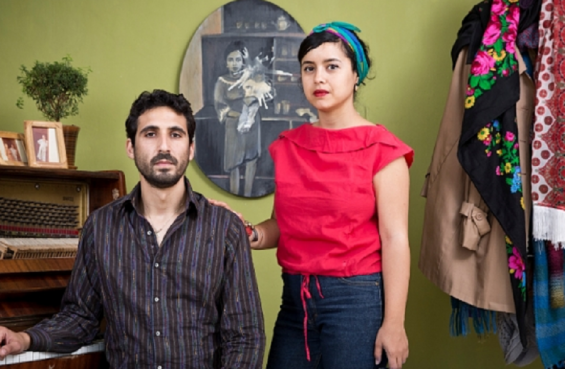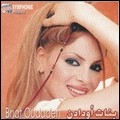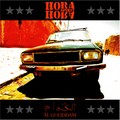Born in Israel but connected to Morocco, this is the story of Amit Hai Cohen, a Jewish musician and filmmaker living in Jerusalem. His grandparents were one of the many Jewish people who lived in Morocco 69 years ago and had to immigrate to Israel. Amit who is fascinated by the Moroccan-Jewish culture, spoke to Yabiladi in an Interview about what Morocco meant to him, his dreams, his passion and art.
Who is Amit Hai Cohen ?
I am a Jewish man whose history is rooted in Morocco and Tunisia. I live in Jerusalem and I am a musician and a filmmaker. In my work I am determined to showcase history, tradition and social problems. I compose also for cinema, I do music production, and writing (…) these are all tools that allow me to say things about the place where I live and tell my story.
You were not born in Morocco but you seem very interested in the Moroccan culture, how come ?
Although I was not born in Morocco, my history is planted there 2000 years ago. In fact, my grandparents, Tamu and Moshe and their ancestors, used to live in a small village called Tizgui located between Ouarzazat and Tilwat. I grew up attached to the Moroccan culture and I love it. I love the colors, the scents and the people. Morocco has allowed me to expand my boundaries and to dream.
The country reminds me of the beautiful face of my grandmother, and the naivety of my grandfather. When I see people in Morocco, I see my family in their faces, the same characteristics, the same facial features, soul and kindness. The first time I have been to Tizgui, I saw the river they were drinking from, and I visited the synagogue they used to pray in. The experience was mind blowing because I had the chance to go back in time.
Were you discriminated against because of your Moroccan origin in Israel ?
Moroccans in Israel have experienced racism from the moment they stepped on the Israeli soil. I have been making music for a series that tackles child kidnapping. It is a painful matter… thousands of Jewish children who came from Arabic and Muslim countries were kidnapped by the authorities for illegal adoption. Their parents were told that their children died but without handing them their bodies, babies just disappeared. However, Israeli-Moroccans knew how to fight back. Reuven Aberjel whom I am currently making a movie about, has been an activist who fought almost all his life against the racism of European Jews who always wanted to control us. Till now, the struggle is ongoing and we have to work hard in order to restore equality.
On the other hand, life in Morocco was not always ideal for Jews, we must face it and have an honest discussion about it… when they came here many of them wanted to go back . They did not understand why Jews were racist against other Jews. Let us say : the world is not and ideal place to live in when you are controlled by others.
Do you consider living in Morocco one day ?
We often come to Morocco, visiting friends and attending concerts. We also are working on our Moroccan passport. We don’t think for the moment of moving to Morocco but I hope we will have Morocco’s door open for us. We belong to Morocco, we are part of it, our rabbis are buried there and the Jewish lifestyle is still present there. Moroccan Jews have always been “here and there”.
I am in daily contact with friends living in Morocco, even from Tizgui, my grandmother’s village. I started working on a project there to document the history of the area. And with God’s help I am planning to build a cemetery for Jews there. I met amazing friends there who are helping me enormously.
Is the Moroccan art popular in Israel ?
Moroccan traditional music is everywhere in synagogues, it is sung during family events and happens to be featured in daily conversations and slang. I have finished working on a musical project that pays tribute to Zohra Alfassia, a great Jewish-Moroccan diva, at the international Oud festival. I collaborated with my partner in life and wife Neta Elkayam and 9 more musicians.
Tickets were sold out two weeks in advance. The hall was packed, young people came with their grandmothers, it was indeed an ecstatic atmosphere. People want to connect with their roots through music and remember their history and not only the 65-year period they spent in Israel.
Do you receive invitations to participate to Moroccan festivals ?
Neta and I have been several times to Essouira Atlantic Andalus festival and participated in other projects in Morocco. Essouira already feels like home to us… we really love this place. When we go there we spend most of our time going to Zawia with friends. Actually we are planning to come soon to record a few musicians for our album that will be published next year.
Do Israelis of Moroccan origin care about what is happening in Morocco?
There is always interest but it’s being erased along the generations. The connection is lost with time. People are less interested in politics and what is happening in the Moroccan society. Well..we have a lot of problems to solve here but today there is also an awakening among the younger generation that wishes to maintain the special relationship between Jews and Morocco. It would be hard to cut off ties, though many want to.




 chargement...
chargement...












